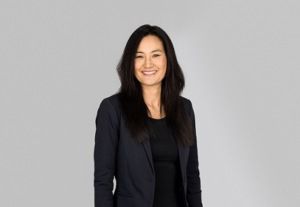News
Local elections 2017: Radikale ideas needed to abolish homelessness
This article is more than 8 years old.
Nyegaard believes that a society should always be judged by how it treats the disadvantaged

A candiate who is very much in favour of progressive, social liberal solutions (photo: Radikale)
A resident in the inner city in Copenhagen, Mia Nyegaard has a degree in politics and has specialised in African studies. In her business life, she has occupied posts in Denmark but also in London, Brussels and Malmö.
A member of the Radikale Venstre since 2000, Nyegaard has been active in a number of party committees. For the last year, she has been the party’s spokesperson on social issues on the municipal city council, where she is a member of the social services committee.
What makes a good local politician?
A good local politician is someone who cares about local issues and knows the city they work for – and someone who has both a local and a global view in order to develop the city with respect for its existing values.
You had a successful career in the private sector before going into politics. Has this has been an advantage to you as a local politician?
Yes, I think the fact that I have had a very eclectic career has helped me, because I have touched base with a lot of different issues which has given me a broad view and a toolbox to be used in solving different political problems
Which areas politically are closest to your heart?
As a social-liberal, I’m a big fan of individual and progressive solutions. At the same time, I believe that a society should always be judged by how we treat the most disadvantaged people in the society.
What are your specific policies in these areas?
My ambition has always been that, as a society, we should be able to abolish homelessness.
We need to see people on their own terms and make sure that the ones who need help get help. I am a big fan of flexjobs and socioeconomic companies that can embrace people with special challenges and let them be part of the working community. We need more of that!
What would you specifically do to promote economic growth in Copenhagen that is not being done already?
As a board member of the Copenhagen EU Office and Copenhagen Capacity, I aim to enhance co-operation in the whole Öresund region and make Copenhagen a hub for the Baltic Sea region. I also think that we need to remove taxes and VAT on film productions in Copenhagen.
A lot of expats and non-Danish speakers can vote, but some feel that perhaps it’s not worthwhile doing so. What do you say to that, and what could you do for this group if you were elected?
I would quote Churchill: “Democracy is the least bad form of government”. And expat or not – the rules apply to everybody who lives here.
So I think it would be foolish not to use their democratic right to influence the city’s development and operation. And since we very much want expats to stay here and also offer career programs for spouses, help to start up new companies and other things, I say: Please go and vote!
What would you do to ensure a ‘greener’ Copenhagen in the future? Are you in favour of the ban on diesel cars that Frank Jensen wants to impose from 2019?
Yes, I’m in favour of the diesel ban in the city and we need to keep the initiative going in the direction of the green transition of the society.
I also think it would be an interesting idea to build a new island in the entrance to Copenhagen from Öresund as a new part of the city, with new housing, beaches etc. This could remove some of the traffic around the city centre and at the same time work as flood protection.
What is the main difference between your policies and those of the ‘blue’ bloc?
We in the Radikale Venstre work dedicatedly for sustainability and equal opportunities for all children.










































